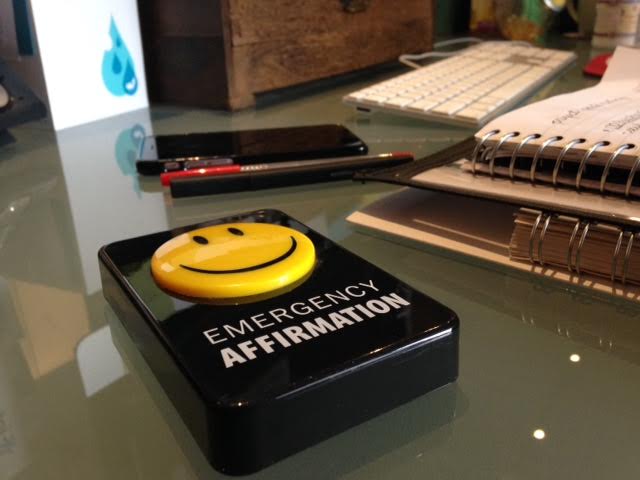Though well-intentioned, New Year’s resolutions are often the stuff of half-hearted Instagram truisms and generic quotes about “doing better.”
Last month, we took a step back as a team to identify our individual and collective aspirations for 2017. We tried to keep them as tangible (and actionable!) as possible. Feel free to steal them or keep them in your back pocket:
Celebrate the Wins
In a recent whole-office monthly meeting, Michael Gabriel, our marketing manager, announced the marketing team’s biggest wins over the last few months. At the end of the meeting, Rhonda Smith, our office and HR manager, noted how much she enjoyed the chance to hear about our success. (When she’s holding down the fort in the front of the office, she rarely gets it hear about what we’re up to.)
This moment made us realize that as we become absorbed by our day-to-day work, we often forget to share our stories of success with each other. We work hard, but we rarely pause to celebrate the results or each other—even though we know it makes us a closer, happier team every time.
Research makes a compelling argument for more celebrations, too: a study from the University of Warwick shows that happy employees are 12 percent more productive. And, unsurprisingly, short-term celebrations can actually have a big impact on long-term success.
There are certain things, like Halloween parties or birthday lunches that are an ingrained, committed, and non-negotiable part of our company culture. And the rest? The smaller stuff? We’re trying to get better.
Make Company Celebrations a Regular Practice
In our weekly internal meetings, we take the time to reflect on what went well in the previous week. Even a particularly energized brainstorming session is worth noting. Without self-judgement or reservation, we also rate our “happiness level,” on a 5-point scale. The scale is based on a number of factors like workload, communication, and support from the rest of the team. The idea is that we reflect on our current states-of-mind before diving head-first into the to-dos that lie ahead.
That intention and mindfulness impacts how we stop to recognize each other, too.
Celebrate Each Other
In the monthly team meetings mentioned earlier, we call out individual achievements as well as the big-picture accomplishments as a team. As a tight-knit group, we do it because we love and value each other. What’s even cooler is that science backs us up. Not only does receiving a compliment release dopamine, which, conveniently for us contributes to innovative thinking and creative problem-solving, but research suggests that employees who get compliments on-the-regular are also are more productive, engaged, and more likely to stick around than those who don’t. The compliment culture goes in every direction, not just from management to the rest of us. Sarah Firle, our Senior Graphic Designer, armed her desk with a “you are awesome” button years ago and we’re all getting in the habit of pressing it more often.

Take Breaks
If we interviewed as an entire office, our interviewee would probably squirm when we said our biggest flaws are “caring too much” or “working too hard,” but it’s true. Seriously.
The margarita machine we bought ourselves years ago is collecting dust and has maybe been used once. We gave away our popcorn machine to a popcorn-loving client because we “couldn’t find time” to use it.
Despite the fact that eating as a group is known to improve group performance and not taking a proper lunch break actually decreases productivity, we have a bad habit of eating at our desks. (On the bright side, we are very healthy eaters.) Day after day, our beautiful back patio begs for one of us to enjoy our sandwich in the sun. A few smart souls have started to answer the patio’s call and have enjoyed the mental restoration it provides. We’re trying.

Be Vocal About Bandwidth
When our task plates our full, we “feel bad” asking our co-workers if they have the bandwidth to help us take a load off.
But we’re getting better.
Mid last year, the marketing team starting incorporating daily “stand up” meetings in which we briefly share what we did the previous day and what’s on our agenda for that day. This practice ends up serving several purposes: it helps us hold ourselves accountable, it keeps us all in-the-know on client status, and perhaps most importantly, it gives the less-busy of us a chance to lend a hand. This year, we’re making an effort to be even more vocal about our bandwidth and more ready to alleviate other members of our team when and where we can. Beyond producing better work with less stress, the extra perk is that the favor is always returned. (We’re nice like that.)
Write Every Day
In January, we brought Brian Appleton onto the team as a second writer. We’re ridiculously excited at how having him will help us bring even more quality content to our clients. But having another in-house wordsmith doesn’t let the rest of the team off the writing hook.
While all of us already contribute to our blog, we’ve set a resolution that each of us write more—and not just for the benefit of our business. Even if it’s just for a few minutes, putting words on paper decreases stress, offers a break of “the noise,” and helps us take a step back to get to know ourselves better. We want that for each other.
And duh, being able to write well is just plain important.
Why “Non-Writers” Should Still Write Well
Harvard Business Review says that “effective writing must be a company-wide endeavor” and we couldn’t agree more. Anyone in your business (or in the world!) who ever has to communicate ideas on paper should be able to do so clearly, succinctly, and effectively. Being typo-free isn’t good enough for us, either. Messaging platform or email, it’s important to us that we are deliberate with our words. Why should it matter for your own business? For what it’s worth, the Harvard Business Review also says that “collaborative writing makes the difference between great business and bad business — a sale or no sale.”
Some Tools to Get Started
Both of our writers and non-writers alike have borrowed some tips from Hubspot’s own list of resolutions, including using tools like Daily Page and Twords. When it comes to blogging, we’re learning to occasionally forgo blogs oriented around strong keywords in exchange for blog topics that we just feel like writing about. Finding the space for fun, inspired writing is critical.
Diversify as Individuals
Little-known fact: our genius web designer and developer, Steph Meyer, started as a graphic designer. Years back, she decided she wanted to learn code. And learn code she did. Today, she speaks over five languages, including HTML, CSS, Javascript, jQuery, and PHP and has coded and designed sites that bring proud tears to our eyes every time we look at them.
A few weeks ago, one of our other graphic designers, Stephanie Baswell, started a coding course for herself.
The T-Shaped Skill Set
We can’t all be coders, of course, but we honor the value in diversifying our skill sets as individuals (and ultimately, as a team). This year, we’re making a conscious effort to do it even more: we celebrate when copywriters learn a bit of design, designers learn a bit of code, coders learn a bit of inbound strategy, and strategists learn a bit of sales. And it goes on like that in every direction. The important thing is that we strike a balance between staying experts in our role while constantly developing our understanding of other roles and how they all fit together. It’s the classic t-shaped skill set.
Make it Actionable
To take it even further, we’re encouraging everyone to broaden their range of certifications beyond the requirements. It’s not for vanity purposes, either. It’s just that we believe in the power of being more well-rounded. It might be unlikely that our sales person (or yours!) needs a strong handle on growth-driven design, but gaining that knowledge certainly can’t hurt. It’s the same reason that everyone in your company can be a brand advocate. Think about a server who actually knows how the food is made, or a seller of electronics who can actually speak to the quality of the individual parts. We can be experts and well-rounded at the same time.
Both individually and as a team, we’re holding ourselves accountable in 2017 to push ourselves harder to meet our goals—even if that sometimes means pushing ourselves to actually pause to celebrate. Haven’t yet decided on resolutions with your own organization? Better start writing. (Or stealing ours.)
-FINAL(01-00)-White&Blue-01.svg)





